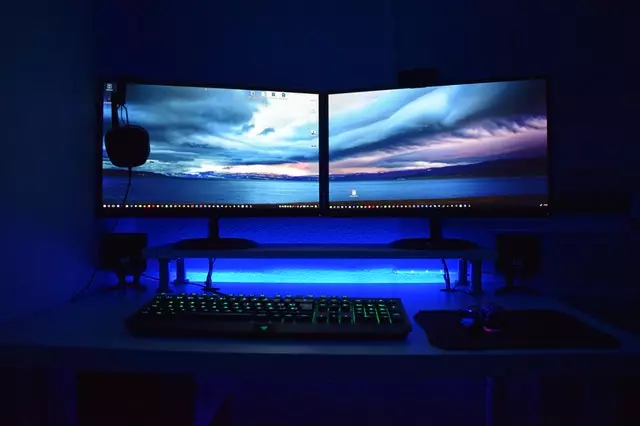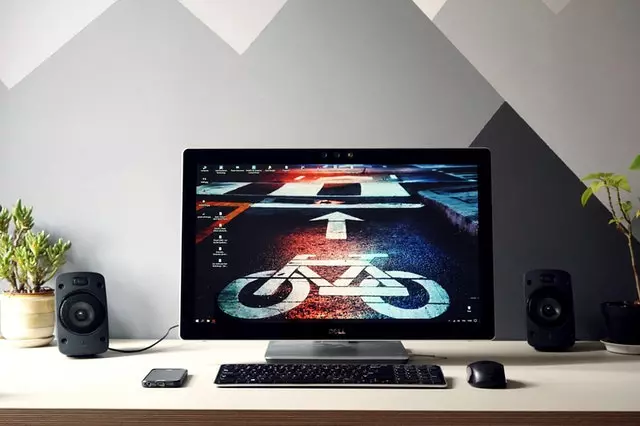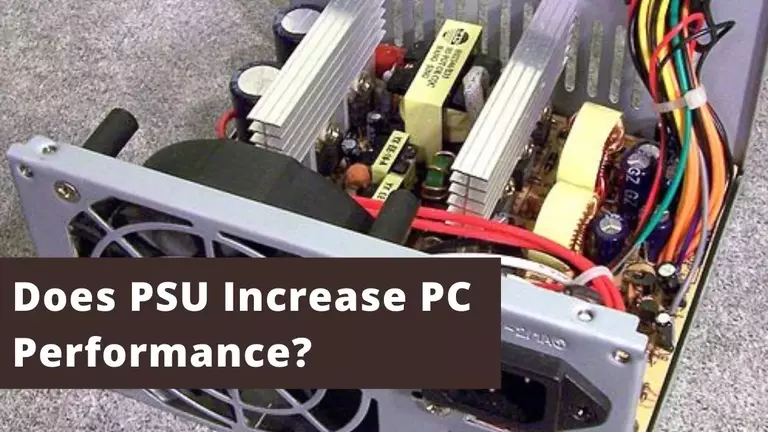A PC power supply unit or PSU is an essential component of a computer that provides power to other components. It converts alternating current electricity from the power outlet into direct current electricity used by the computer’s internal devices.
A power supply can help a computer run more efficiently and with fewer issues.
One common misconception about power supplies is that they are an unnecessary expense. However, while a power supply does not have to be the most expensive component in a computer build, they are an important one.
When it comes to powering your PC, the power supply unit (PSU) is one of the most important components. The power supply unit can regulate all the electrical power flowing to other components in a PC and ensure a stable flow of electricity.
The PSU’s job relies on a couple of factors:
- The total wattage of all hardware in your system.
- The number and type of connectors you need – for example, if you have one or more graphics cards, then you will need to get a PSU that has enough 6-pin or 8-pin PCIe connectors.
- If you have any other peripherals such as monitors or DVD drives, then you’ll need enough spare connectors to connect them up to.
Choosing the right PSU is important because it will be the power source for all of your computer components. A weak or unreliable PSU can cause a lot of problems and headaches down the line.
Brands like Corsair, EVGA, Rosewill, and so on are known to produce reliable PSUs with good performance at an affordable price.
There are also PSUs with better performance than these brands but they will come at a higher price point.
Brands like Seasonic or Silverstone produce high-quality PSUs that tend to be more expensive than other brands with slightly lower performance.
Does PSU Increase Performance?

In general, the answer is no, not directly, the main parts responsible for the computer’s performance are the CPU, RAM, and GPU.
But if we think a bit about it, The PSU does play a role in providing these parts with power, so if you’re a hardcore gamer or a video editor who needs to overclock these parts, the overclocking process requires you to provide these parts with more voltage.
It’s important to know what the wattage rating of your PSU is, as this will determine how much electricity it can provide.
The higher the rating, the more powerful the PSU.
A high wattage rating means that a PSU is more able to cope with peak demand for power, like when you are running multiple applications at once or are using a graphics card intensively.
In most cases, a better PSU will affect performance as it has more features that allow it to handle different workloads more efficiently. PSUs with higher wattage ratings are also able to better regulate the power supplied to your PC’s components and give them extra headroom for overclocking.
Does PSU Affect FPS?

In games, frames per second or FPS is a term used to describe the frequency at which an animation sends a new frame to the screen. The more frames sent, the smoother and more realistic animation becomes.
Most games have a framerate of 60 frames per second because that is the standard for HDTVs. However, some games have higher framerates that can reach up to 120 fps.
But does a PSU really affects FPS and your whole gaming experience? Well… No, as mentioned above, The number of FPS is related to your computer’s performance, if you have a really good computer that can hold against modern-day games then you’ll probably have no issue running your games smoothly and with a high FPS, so considering the PSU you have it doesn’t matter if it’s expensive or too expensive, you’ll still get the same FPS
Does PSU Affect Gaming?

We can say that PSU does not directly affect gaming performance, but it will have an effect on the stability and lifespan of your system.
A gaming PC’s power supply unit (PSU) can affect performance in both positive and negative ways. Buying a crappy PSU is bad for performance. But a good quality PSU can also improve your system’s performance with higher wattage which will deliver more power especially if you have a high-end graphics card that needs lots of power to run properly!
